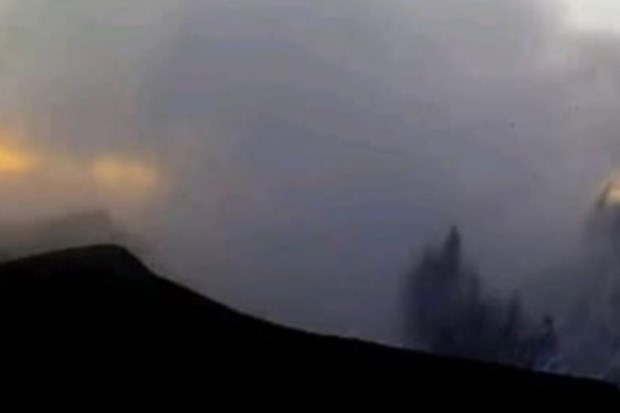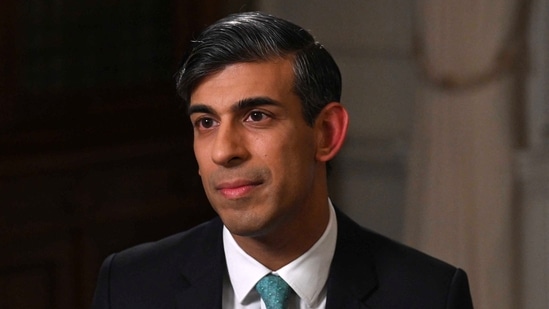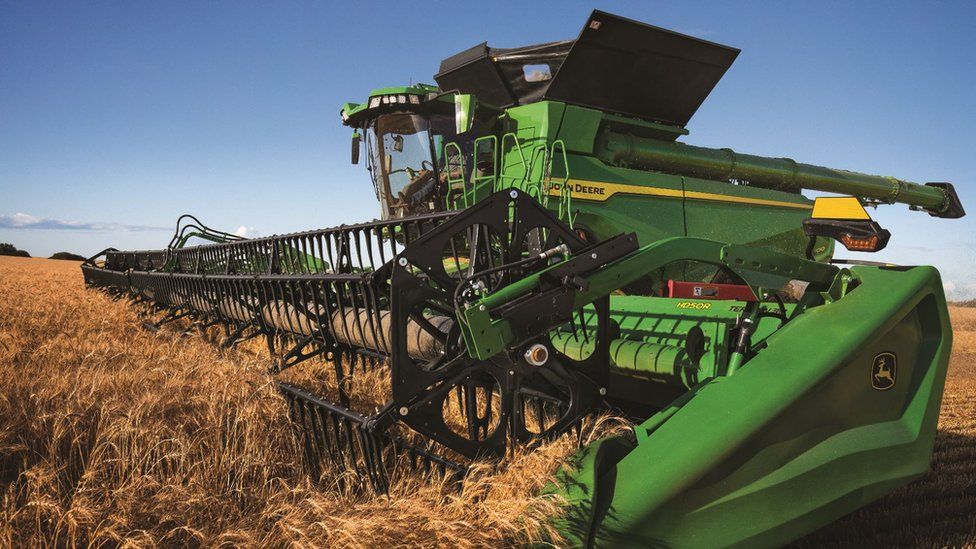India Is Wrong: Russia’s Aggression In Ukraine Has Global, Not Just European Ramifications – OpEd

India's Prime Minister, Shri Narendra Modi with the
President of Russian Federation, Mr. Vladimir Putin,
at Hyderabad House, in New Delhi on December 06, 2021.
Photo Credit: PM India
India is wrong to dismiss Russia’s war in Ukraine as Europe’s problem. The illegality and destructiveness of the invasion, and consequential food and energy crises, have global ramifications. That is why 143 out of the 193 member-states of the UN General Assembly have voted against recognising Russia’s illegal annexation of four Ukrainian regions after holding sham referenda there. Ninety-three voted in favour of expelling Russia from the UN Human Rights Council.
India has abstained from every vote in the UN condemning Russia’s aggression in Ukraine. The reason? Moscow is India’s top arms supplier and some 70% of India’s military platforms are of Russian origin. That raises questions about India’s strategic autonomy – but such queries are like water off a duck’s back.
Justifying India’s refusal to censure Russia’s unlawful assault on Ukraine at the GLOBSEC 2022 Bratislava Forum in Slovakia in June, External Affairs Minister S. Jaishankar contended that “Europe has to grow out of the mindset that Europe’s problems are the world’s problems, but the world’s problems are not Europe’s problems”.
Who would have thought that contemporary self-styled ‘Vishwaguru India’, wanting to create ‘One World, One Family, One Future’ as president of the G20 over the next two years, could brush off or be slow to recognise the global food and energy crises inflicted by Russia’s invasion of Ukraine, whose statehood the international community recognised after the Soviet Union’s collapse in 1991?
Russia, not Western sanctions, precipitated the crises by blockading the first of many Ukrainian ports on March 3. The head of the African Union, President Macky Sall of Senegal and President Joko Widodo of Indonesia, then heading the G20, met President Vladimir Putin last June to discuss the food, fertiliser and fuel crises caused by Russia’s blockade of Ukrainian ports. Prime Minister Narendra Modi met him for the first time since Moscow launched its invasion only in September 2022 – at the Shanghai Cooperation Organisation meeting, sponsored by Russia’s iron strategic partner, China.
By shrugging aside Russia’s aggression as Europe’s problem, India has also shown indifference to the fears – in and outside the Indo-Pacific – that China, the dominant partner in the Sino-Russian relationship, could follow Russia’s example and try to restructure Asia’s security architecture through war. For, China menaces the territorial sovereignty of many of its Asian neighbours, including India.
India’s strategic partner in the Quad, Japan, faces Chinese threats to its sovereignty and fears that “Ukraine today may be East Asia tomorrow”. Unsurprisingly, Japan has ended its 77-year-old pacifism. On December 16, Japan announced its greatest military build-up since the end of the Second World War in 1945.
At the economic level, India has purchased unprecedented amounts of Russian crude at discount prices on the grounds that Europe’s energy imports from Russia have dwarfed New Delhi’s buys. New Delhi avows that its “moral duty” is to ensure the best deal for a country “with a per capita income of $2,000″. However, the common man has not benefited from India’s rising oil imports from Russia. Instead, the private companies which have snapped up cheap Russian oil have made huge profits by selling it abroad – even to Europe.
Meanwhile, the foreign minister of a war-ravaged but unconquered Ukraine, Dmytro Kuleba, laments that it is “morally inappropriate” of India to argue that Europeans are also buying Russian energy. India is buying cheap Russian oil because of “our suffering”.
A view shows a well head and a drilling rig in the Yarakta Oil Field, owned by Irkutsk Oil Company (INK), in Irkutsk Region, Russia March 11, 2019. Photo: Reuters/Vasily Fedosenko
Double standards revealed
New Delhi keeps mum about authoritarian Russia’s silence on China’s expansionism in India and Southeast Asia. In contrast, it has sharply criticised democratic Europe for being silent on China’s activities in Asia: “When the rules-based order was under challenge in Asia, the advice we got from Europe was to do more trade.”
Admittedly, the EU was strengthening its trading ties with China as Beijing displayed its expansionist intentions in the South and East China Seas after 2010. But so was India, whose trade with China has burgeoned to record heights despite border clashes in June 2020 – and again in December 2022.
True, the EU has no defence policy and cannot save ‘Asia’ from China’s belligerence just because France and Germany send a few warships to the Indo-Pacific. But India cannot ‘defend Asia’ from Chinese imperialism any more than the EU. Its GDP per capita of 2,256.6 and military spending of $ 76 billion are no match for China’s 12,556.3 and $ 293 billion respectively. So India focuses on securing its borders with China and Pakistan, and on countering China’s fierce economic and military competition in its immediate South Asian neighbourhood.
Whatever its flaws, the EU is not as parochial as New Delhi alleges. The Union is the world’s largest aid donor and has invested generously in Asia and Africa to counter China’s economic influence. Between 2013 and 2018, the EU gave €410 billion (around $436 billion) in official development assistance worldwide; China €34 billion ($ 36 billion). In 2019, EU investment in ASEAN totalled €313.6 billion (over $300 billion)… From April 2019 to March 2022, India invested $ $55.5 billion (about €52.3 billion) in ASEAN. India itself could be helped by the EU’s €300 (($ 318 billion) Global Gateway fund, which will expand connectivity in the Indo-Pacific and Africa.
Responding to Russia’s threat to wage nuclear war, India has wrongly sermonised that “nuclear weapons should not be used by any side in the Ukraine war”. The fact? Ukraine is not a nuclear state. In 1994 it chose to denuclearise because the US, Britain and Russia, in the Budapest Memorandum, promised to guarantee its security. By invading Ukraine in 2014 and 2022, Russia violated that commitment, imperilling European and global security.
India could learn something from the EU’s experience. Russia does not menace the sovereignty of any EU country at the moment. But by relying on a territorial spoiler for energy, even after Russia’s first invasion of Ukraine in 2014, democratic Europe has gone adrift in its strategic thinking, As India confronts China’s land grabs, its dependence on Beijing for trade could be self-defeating, given China’s contempt for its slow progress.
Meanwhile, what does New Delhi think of Putin’s assertion that it is “natural” that China’s “military might grows along with the rise in the economic potential”, and that China’s growing might “first of all… relates to its economic might… why should we follow third countries’ interests in building our policy?” Such is Russia’s applause for China’s imperialism.
At another level – amazingly – after supplying India with weapons for over five decades, Moscow has reportedly asked New Delhi for parts of cars, aircraft and trains. So where will that leave India’s dependence on Russian arms against China? At least EU countries are not in the incongruous and shaky position of being reliant on two enemies – Russia and the US – one of which could lose militarily in Ukraine.
The tangled legal, political and economic repercussions of Russia’s devastating war in Ukraine extend far beyond Europe. Unlike India, most members of the G20 – hailing from the Americas, across Europe to Asia – have voted against Russia’s transgressions of international law and human rights in Ukraine. India will be able to provide constructive leadership to the G20 only if it recognises their shock and despair at Russia’s blatant contraventions of international norms. Even as democratic Europe confronts the strategic fallout and human distress caused by Russia’s warmongering, it should step up its economic contribution to the well-being of Asia – and the rest of the developing world.
This article was first published in The Wire on 8 January 2023

Anita Inder Singh
Anita Inder Singh, a Swedish citizen, is a Founding Professor of the Center for Peace and Conflict Resolution in New Delhi. Her books include Democracy, Ethnic Diversity and Security in Post-Communist Europe (Praeger, USA, 2001) ; her Oxford doctoral thesis, The Origins of the Partition of India, 1936-1947 (Oxford University Press [OUP], several editions since 1987, published in a special omnibus comprising the four classic works on the Partition by OUP (2002, paperback: 2004) The Limits of British Influence: South Asia and the Anglo-American Relationship 1947-56 (Macmillan, London, and St Martin's Press, New York, 1993), and The United States, South Asia and the Global Anti-Terrorist Coalition (2006). Her articles have been published in The World Today, (many on nationalism, security and democracy were published in this magazine) International Affairs, (both Chatham House, London) the Times Literary Supplement, the Guardian, the Far Eastern Economic Review, the Asian Wall Street Journal, the Nikkei Asian Review and The Diplomat.



:quality(70)/cloudfront-eu-central-1.images.arcpublishing.com/thenational/PUHTCFV2AFHULFRIC6CMJQJK4U.jpeg)



